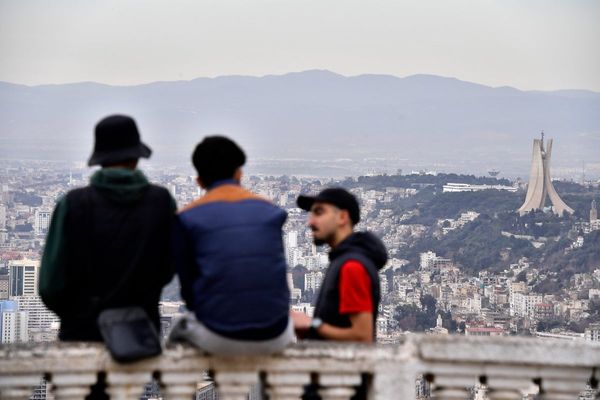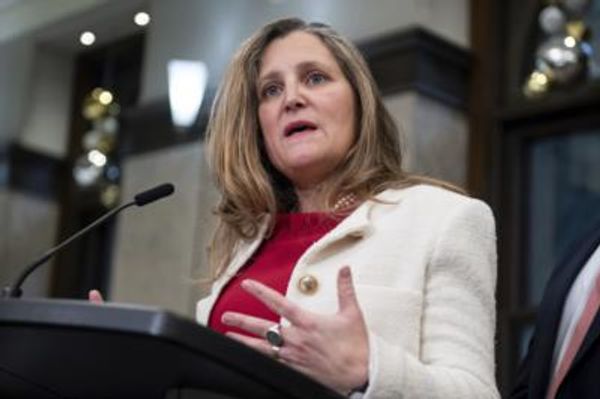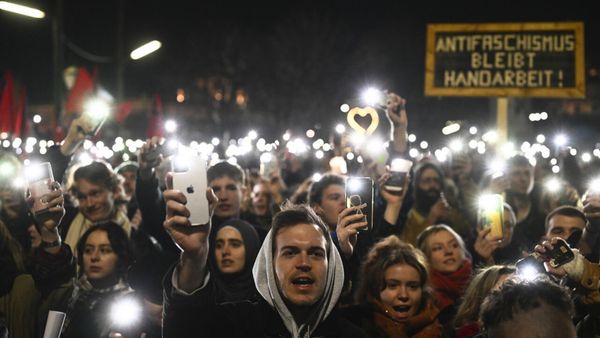
China’s two-child policy only lasted five years.
Wedged between the older, more established one-child policy and now eclipsed by the third-child policy, it had middle-sibling syndrome written all over it: overlooked, insufficiently resourced, and easily forgotten.
Yet there was hope when the two-child policy was born in 2016. Although it would have been better to drop all birth quotas, this move was, at least, an opportunity for the Chinese Communist Party to reverse the abuses of the one-child policy and create a new vision of a modern Chinese family backed by state support.
Although Beijing had been slowly loosening birth restrictions, it wasn’t until 2016 it switched to a nationwide push to boost, not balk at, births. It was the first time in more than 30 years nobody in China was restricted to just one child per household. Women had less to fear of being hunted down and dragged away for a forced abortion—a thing that happened as recently as four years before, when authorities dragged away a seven-months pregnant Feng Jianmei and performed a horror that made the world flinch.
During the launch of the two-child policy, China—for the first time—broached the idea of family planning inclusiveness in its Five Year Plan. Although nobody knew exactly what this meant, there was cautious hope, at least among same-sex couples and unmarried mothers, that this could lead to a broadening of China’s rigid notion of the ideal family: single-child households with married, heterosexual parents. Regulations were revised to extend paid parental leave for both new mothers and fathers.
China’s National Health and Family Planning Commission projected the switch to the two-child policy would result in an extra 30 million working-age people by 2050. A commission advisor, Yuan Xin, even predicted “a virtual traffic jam in newborn babies.”
What happened instead was the fertility equivalent of a car crash.
After an initial first-year baby bump, birth rates fell every year of the two-child policy. Instead of a baby bump, China saw its population decline to a level not seen since the 1950s Great Leap Forward, when millions of people starved to death under Chinese leader Mao Zedong’s disastrous agricultural reforms.
Beijing didn’t try to rewrite the script. Instead, the men of Zhongnanhai largely resorted to the old, sexist playbook from one-child policy days. Instead of providing adequate economic inducements to lessen parenting burdens, such as subsidized education and child care, authorities resorted to the stick, not carrot, approach. The middle classes were bombarded with old-school messages exhorting the need to produce for the motherland. Officials in the Chinese city of Yicheng sent a letter to party members urging them to expand their families with the message, “doing it starts with me.” Authorities in Henan province even took advantage of the pandemic lockdown to tell residents, “Stay at home during the outbreak. Two-child policy has started. Creating a second child can also contribute to the country.”
Sinister remnants of the one-child policy still remained, not least because there was a vast apparatus still in place to enforce it. Hapless couples that breached their birth quotas still risked harsh punishment. In late 2018 and early 2019, a Guangdong couple, Xue Ruiquan and Xie Zhengning lost their jobs and were fined around $20,000 after they had a third child. As punishment, Xue, a highly decorated public security officer, was forced to sweep the streets before he was fired. In Xinjiang, authorities continue subjecting Uyghur women to forced pregnancy checks, sterilization, and abortions under a wide-sweeping cultural persecution campaign.
Once more, women ended up bearing the brunt of the two-child population planning onslaught. Authorities did not back up their words with deeds and failed to provide enforcement and protection for women in the workplace. As a result, the policy made pregnancy-based discrimination more common, according to a recent Human Rights Report. Numerous women described how they were asked about their childbearing status during job interviews, forced to sign contracts pledging not to get pregnant, or were demoted or fired for being pregnant. Among the report’s dismaying findings, almost 50 percent of cases between 2017 and 2019 handled by legal aid group Professional Women Legal Hotline concerned pregnancy-based discrimination, with 69 percent of those women saying they had been fired or forced to resign. Of those, 11 percent said their wages were withheld.
Under the two-child policy, women in China have been commonly regarded by employers as fecund “ticking time-bombs,” liable to explode with increasing demands for maternity leave and other parenting-related needs, said Human Rights Watch researcher Yaqiu Wang.
In short, the two-child policy did something similar to the one-child policy: It made pregnant women targets.
Is it any wonder China’s birth rates didn’t go up? Yet once again, headlines abound wondering if the third-child policy can boost China’s birth rate, and many media reports explain why people in China don’t want more children.
There’s a stale feeling to the birth of the third-child policy, mixed in a vast vat of cynicism and female rage, in part because the traumas of the one-child policy have been compounded by the blunders of the two-child policy.
In a Medium essay, “Doomed To Fail,” feminist Lu Pin wrote: “Chinese women have not forgotten the abuses their mothers and themselves have experienced. Regarding the issue of childbirth, women have sufficient reasons to distrust the state and full right to not follow the state policy.”
Academic Kailing Xie, who writes about societal pressures faced by adult women of the one-child generation, said the move to a three-child policy exacerbates already heavy pressures on urban women to fulfill gendered stereotypes as loving mothers and wives. “How about rural women with less privileges facing such a policy shift? How would they negotiate their reproductive choices? I am deeply concerned,” she said.
The two-child policy died a few days before the anniversary of the Tiananmen Square massacre. Thirty-two years ago, Beijing ruthlessly quashed student demands for political reform. There’s little likelihood there will be any events to commemorate this as this act has now been criminalized in Hong Kong, previously the last bastion. Quite possibly, the death of the two-child policy now replaces it as the greatest act of resistance on Chinese soil. The women of China have resoundingly voted with their wombs against the government’s latest attempt to dictate their reproductive choices. They’re saying: No. No. No.







